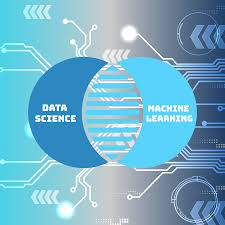Machine Learning is the subarea of artificial intelligence. It makes computers get smarter without explicit programming. When fed new data and given the opportunity to learn, grow, change and develop, these computers do so by themselves. This technology has been around for quite some time. However, the ability to automatically and quickly apply mathematical calculations to big data has now gained a bit of momentum. We will further skim through the significance and application of this technology, as well as why every data scientist should have it.
Introduction to machine learning
ML has been applied in several places, such as the online recommendation engines, the self-driving Google cars, friend recommendations on Facebook, and cyber fraud. Although there are numerous supervised machine learning methods, the following are the most often used:
- Linear regression
- Logistic regression
- Decision tree
- A random forest classification algorithm
Unsupervised machine learning algorithms are used to find common traits and distinguish patterns in unstructured data. This type of machine learning method can freely investigate the structure of data because it does not require any prior training or tagged data.
Importance of machine learning
Machine learning is continuously evolving and with evolution comes a rise of demand and importance. ML is crucial for data scientists because:
- it enables them to make high-value predictions that can help them make better decisions and smart actions
- it analyzes large chunks of data, easing the tasks for data scientists in an automated way
- it has changed how data extraction and interpretation work. It involves automatic sets of generic methods, which have replaced traditional statistical techniques.
Machine learning in data science: real-world applications
Machine learning technology is used in nearly every industry, from financial institutions to the entertainment industry. This technology is what powers the applications used every day to make lives easier, such as:
Speech Recognition
If anyone has ever wondered what goes on behind the scenes of Alexa or Siri? Machine Learning is used by smartphone voice assistants to recognize what users say and respond appropriately. ML models are trained on a variety of human languages and accents to transform speech into words and make a clever response.
Online recommendation engines
Machine learning is used by online recommendation engines to give relevant recommendations to their users. Customers can find recommended products on Amazon, YouTube viewers can find tailored video recommendations, and Facebook users can find friends’ recommendations, customer behavior, past purchases, browsing history, and any other behavioral information about customers are used to train machine learning models.
Fraud detection
To keep their clients safe, banks use ML technology to detect fraud. The technology models are trained to identify fraudulent transactions based on established criteria and transaction patterns. Further, machine learning technology can assure customer safety not just for banks, but also for private businesses. If you are interested in machine learning career opportunities , you can look for remote ML intern job options first.
Machine learning transforming the data analysis avenue
Traditionally, data analysis has been characterized by the trial-and-error approach. One that becomes impossible to use with significant and heterogeneous data. It is for this very reason that big data was criticized for being overhyped. The availability of more information is directly proportional to the accuracy of predictive models. Traditional statistical solutions are focused on static analysis that can only analyze samples that are frozen in space and time. Enough, this could lead to unreliable and inaccurate conclusions.
The solution to all this chaos comes in the form of machine learning, which proposes smart alternatives to analyzing vast amounts of data. It is a leap ahead from statistics, computer science, and other emerging applications in this industry. ML technology can produce results and analysis by developing data-driven models and algorithms for real-time processing.
Read More: AI and Machine Learning Masters Program Certification in Munich


